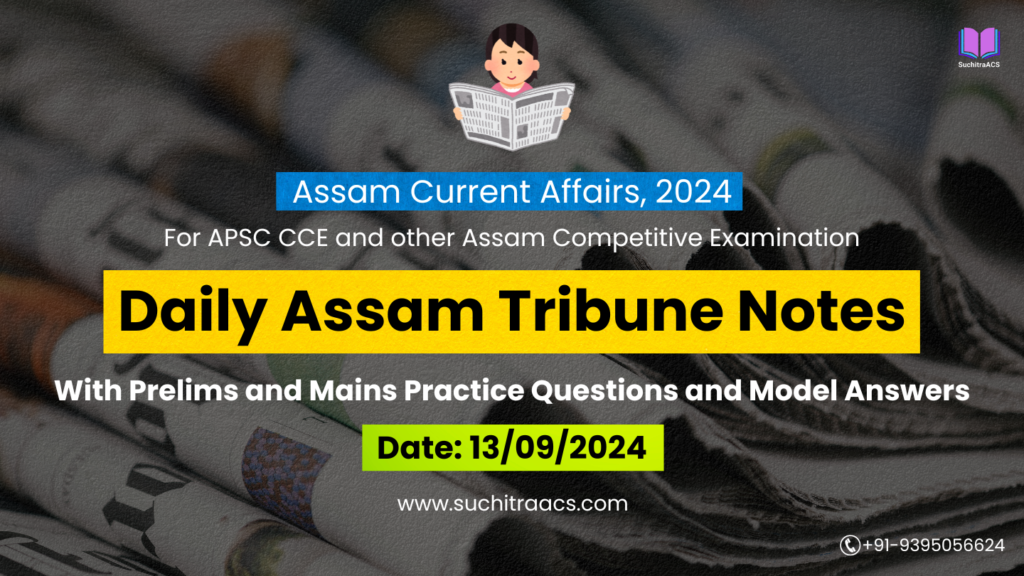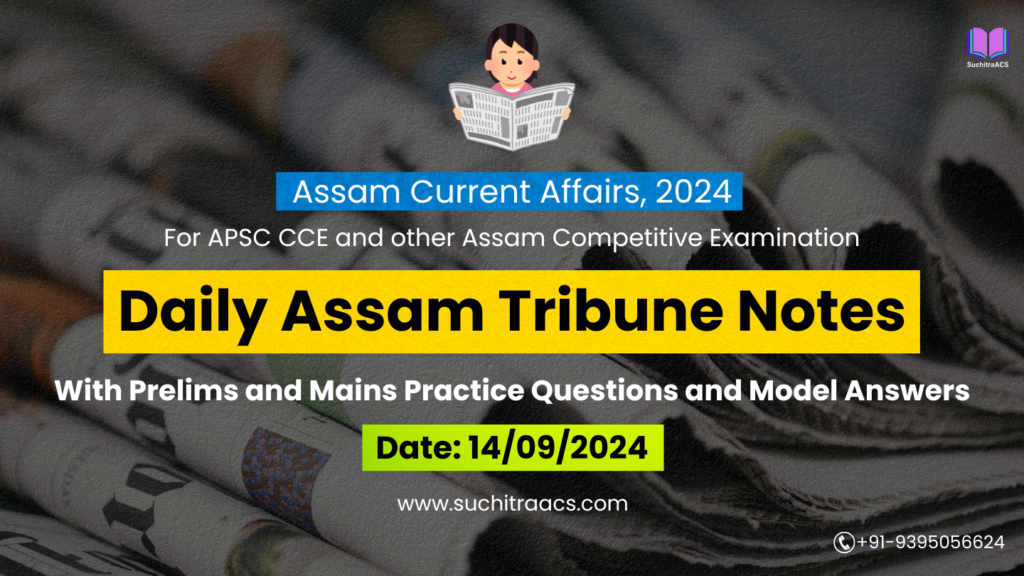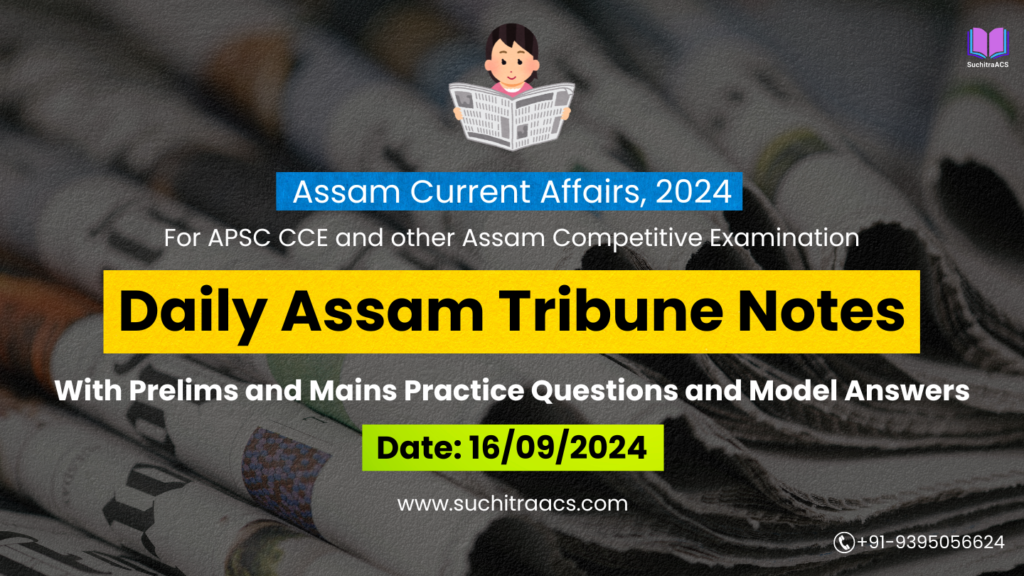1. One Nation, One Election
- Relevance to Syllabus:
- Prelims: Polity & Governance – Current events of national and international importance.
- Mains: GS II – Polity, Governance, Constitution, and Social Justice
- Comprehensive Notes:
- Concept: The idea of holding simultaneous elections for the Lok Sabha (the lower house of the Parliament of India) and all state legislative assemblies to reduce the frequency of elections and associated costs.
- Rationale:
- Reduces the massive expenditure incurred during frequent elections.
- Enables the government to focus on governance instead of being in constant election mode.
- Minimizes disruption of public life and services due to the Model Code of Conduct.
- Challenges:
- Requires amendments to the Constitution, the Representation of the People Act, 1951, and the Rules of Procedure of the Lok Sabha and state Assemblies.
- Needs consensus among political parties, which is often difficult to achieve.
- Concerns about the impact on regional parties and the federal structure of India.
- Current Status: The Union Cabinet has approved the recommendations of a high-level committee to implement “one nation, one election” in a phased manner. An implementation group will be formed to take the process forward.
- Arguments in Favor:
- Reduces the burden on the exchequer and administrative machinery.
- Provides stability and continuity in governance.
- Curbs the impact of the Model Code of Conduct on development work.
- Arguments Against:
- Undermines the federal structure of India.
- May favor national parties over regional parties.
- Could lead to a situation where state elections are influenced by national issues.
2. India-Myanmar Border Fencing
- Relevance to Syllabus:
- Prelims: Geography of India, Current events of national and international importance
- Mains: GS II – International Relations, GS III – Security and Disaster Management
- Comprehensive Notes:
- Context: The entire 1,643 km India-Myanmar border will be fenced to curb the smuggling of arms, ammunition, and narcotics.
- Significance:
- Enhances border security and prevents illegal activities.
- Crucial for maintaining peace and stability in the Northeast, particularly in light of the ethnic violence in Manipur.
- Supports the government’s Act East policy by promoting secure trade and connectivity.
- Challenges:
- Difficult terrain and remote areas pose logistical challenges.
- Potential impact on the free movement of people residing near the border.
- Requires cooperation and coordination with the Myanmar government.
3. National Cyber Forensic Laboratory in Assam
- Relevance to Syllabus:
- Prelims: Science and Technology, Current events of national and international importance
- Mains: GS II – Governance, GS III – Science and Technology, Security
- Comprehensive Notes:
- Context: The Ministry of Home Affairs has agreed to set up a National Cyber Forensic Laboratory in Assam to address the growing threat of cybercrime in the Northeast.
- Significance:
- Strengthens the region’s capacity to investigate and prosecute cybercrimes.
- Provides technical support to law enforcement agencies in the Northeast.
- Helps in mitigating and preventing cybercrime.
- Key Points:
- The laboratory will be equipped with advanced technology and trained manpower.
- It will be set up in the Lachit Barpukan Police Academy, Dergaon.
- The lab is expected to be operational within three months.
4. APSC Cash-for-Job Scam
- Relevance to Syllabus:
- Prelims: Current events of national and international importance
- Mains: GS II – Governance, GS IV – Ethics, Integrity, and Aptitude
- Comprehensive Notes:
- Context: The Court of Special Judge, Assam, has taken cognizance of alleged offenses committed by nine APS and ACS officers who were not named in the chargesheet submitted by the SIT probing the APSC cash-for-job scam.
- Significance:
- Highlights the deep-rooted corruption in the APSC recruitment process.
- Underscores the need for transparency and accountability in public institutions.
- Reinforces the importance of upholding ethical standards in public service.
- Key Points:
- The court found prima facie evidence against the nine officers for enhancing their marks in the final tabulation sheets.
- The accused have been asked to appear in court on October 1.
- The case has seen several twists and turns, with the High Court expressing doubts over the investigation and the SIT being reconstituted.
APSC Prelims Practice Questions
1. Polity & Governance
Question: Which of the following statements is/are correct regarding the ‘One Nation, One Election’ proposal?
(i) It aims to hold simultaneous elections for the Lok Sabha and all state legislative assemblies.
(ii) The Union Cabinet has approved the recommendations of a high-level committee to implement it.
(iii) It requires amendments to the Constitution and other relevant laws. (iv) It has received unanimous support from all political parties.
(A) (i) and (iv) only
(B) (ii) and (iii) only
(C) (i), (ii) and (iii) only
(D) (i), (ii), (iii) and (iv)
Answer: (C)
2. International Relations
Question: The entire India-Myanmar border will be fenced at an approximate cost of:
(A) Rs 10,000 crore
(B) Rs 20,000 crore
(C) Rs 31,000 crore
(D) Rs 40,000 crore
Answer: (C)
3. Science & Technology
Question: The second National Cyber Forensic Laboratory in India will be set up in:
(A) Assam
(B) Manipur
(C) Meghalaya
(D) Tripura
Answer: (A)
4. General Science
Question: Which of the following greenhouse gases is primarily emitted from paddy fields?
(A) Methane
(B) Carbon dioxide
(C) Nitrous oxide
(D) Ozone
Answer: (A)
5. Economy
Question: The Union Cabinet has approved the continuation of which scheme to provide better prices to farmers and control price volatility of essential commodities?
(A) PM-KISAN
(B) PM-AASHA
(C) PM-JAY
(D) PM-SYM
Answer: (B)
APSC Mains Practice Question
Question: The concept of “One Nation, One Election” has been gaining traction in recent times. Critically examine the potential benefits and challenges of implementing simultaneous elections in India, considering its implications for the federal structure, political landscape, and overall governance. (250 words)
Model Answer:
The concept of “One Nation, One Election” proposes conducting simultaneous elections for the Lok Sabha and all state legislative assemblies. Proponents argue that it would streamline the electoral process, reduce costs, and enhance governance by minimizing disruptions caused by frequent elections. However, the implementation of this idea presents several challenges and implications that need careful consideration.
Potential Benefits:
- Reduced Expenditure: Frequent elections impose a significant financial burden on the exchequer. Simultaneous elections could lead to substantial cost savings by consolidating electoral processes and logistics.
- Enhanced Governance: The constant cycle of elections often diverts the government’s focus from governance and policy implementation. Simultaneous elections could provide a more stable environment for long-term planning and execution of development initiatives.
- Minimized Disruptions: The Model Code of Conduct, enforced during elections, restricts government activities and can hinder development work. Simultaneous elections could reduce the frequency and duration of such disruptions.
Challenges and Implications:
- Constitutional Amendments: Implementing simultaneous elections would necessitate significant amendments to the Constitution, the Representation of the People Act, and other relevant laws, requiring a broad political consensus.
- Federalism Concerns: India’s federal structure grants states autonomy in conducting elections. Simultaneous elections could potentially undermine this autonomy and centralize power at the Union level.
- Impact on Regional Parties: Simultaneous elections might favor national parties with greater resources and organizational capabilities, potentially marginalizing regional parties and affecting the diversity of political representation.
- Unforeseen Circumstances: The possibility of premature dissolution of state assemblies or the Lok Sabha due to unforeseen circumstances could disrupt the synchronization of elections and necessitate mid-term polls.
- Voter Behavior: Simultaneous elections could influence voter behavior, with national issues potentially overshadowing local concerns in state elections, impacting the accountability of state governments.
Conclusion: While the concept of “One Nation, One Election” offers potential benefits in terms of cost savings and improved governance, its implementation requires careful consideration of the challenges and implications for India’s federal structure, political landscape, and democratic processes. A comprehensive and inclusive approach, involving consultations with all stakeholders and addressing concerns related to federalism and political representation, is crucial to ensure that any reforms in the electoral system strengthen democracy and promote good governance.
✨ Looking for top-quality APSC online coaching at an affordable price?

🔔 Join Our WhatsApp Study Group!
For exclusive access to premium quality content, including study materials, current affairs, MCQs, and model answers for APSC CCE and other Assam competitive exams.
Click here to join: SuchitraACS Study WhatsApp Group
📚 Want to know more about SuchitraACS’s most affordable courses?
Click here to know more: SuchitraACS Courses for APSC CCE and Assam Competitive Examinations




